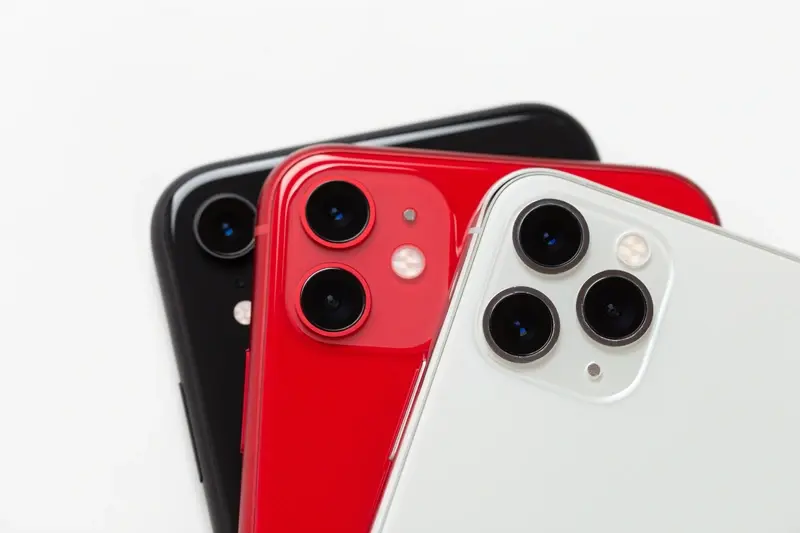
The crisis in the US regional banking sector refuses to go away and, in a situation like this, once market confidence has been lost it can be very hard to restore.
It all added up to a bleak week for US indices which were firmly lower across the board despite the US Federal Reserve signalling it would hit pause on interest rate hikes after its latest 25 basis point increase.
Accompanying comments from Fed chair Jerome Powell were open to interpretation on whether this is the end of the current rate hiking cycle or not.
Unsurprisingly banks dominated the list of market losers over the past week. Joining them was Paramount Global (PARA:NASDAQ) which slashed its dividend and swung to a first quarter loss as it ramped up investment in its streaming service.
Not all businesses were struggling. Can maker Ball Corporation (BALL:NYSE) beat earnings expectations and cruise operator Royal Caribbean (RCL:NYSE) lifted its earnings guidance after seeing a record level of bookings. Brewer Molson Coors (TAP:NYSE) demonstrated some pricing power with its own first quarter update, helping it to gain favour with investors.
APPLE
It’s been a strong earnings season for big tech, and while the smartphone industry contracted over the past year, the iPhone managed to buck that trend and register some growth. This played a big part in Apple (AAPL:NASDAQ) smashing overall expectations and investors sending its stock more than 2% higher in after-market trading.
The iPhones rebound balanced out less-than-stellar sales of Macs and iPads, and while the ever-lucrative services segment (including Apple TV, Music, and iCloud) may not have exceeded expectations, it still managed to chalk up sales growth of 5%.
All in all, this was a solid January to March performance, with people using more of its products than ever before. And while so far resisting any temptation to overegg AI, Apple is weaving bits and pieces into its kit and services, spicing up user experience and rejigging product use cases.
As for the future, there’s plenty of AI under the hood of Apple’s self-driving car project, something that’s been getting investors quietly excited for some time, while there’s buzz around reports it’s working on an AI-powered health coach and slowing slipping into the banking business - on 24 April, Apple launched a high-yield savings account with Goldman Sachs, offering US clients a 4.15% annual yield and seamless integration with its Wallet app. If they’re not trembling yet traditional banks soon will be.
With a $90 billion share buyback program thrown into the mix, it’s no surprise investors sent the stock up.
KELLOGG/KRAFT HEINZ
In a case of 'travel and arrive', shares in breakfast snack and cereal-maker Kellogg (K:NYSE) eased 1.6% to $70.38 after the firm posted forecast-beating first-quarter revenue and raised its outlook.
Despite several price hikes to offset soaring input costs, consumers showed no signs of pushing back or trading down to cheaper products leading the company to lift its earnings and sales targets for the full year.
Similarly, food and beverage group Kraft Heinz (KHC:NYSE) lifted its full year guidance after announcing better than expected first-quarter results.
The firm now sees 2023 organic sales growing by 4% to 6%, slightly below Kellogg’s raised target of 6% to 7%, along with an increase in gross margins.
Chief executive Miguel Patricio said he was confident Kraft Heinz had ‘the right strategy in place to win with customers and consumers, and to deliver profitable growth and create value for our stockholders’.
PFIZER / MODERNA
Pharmaceutical company Pfizer (PFE:NYSE) topped Wall Street estimates on Tuesday (2 May) despite first quarter revenue falling almost a third to $18.28 billion on lower Covid-19 vaccine sales.
Analysts had penciled in $16.59 billion of revenue and EPS (earnings per share) of $0.98 which was 25% shy of the $1.23 per share reported.
CEO Albert Bourla said he expects 2023 to be a transitional year for Covid-19 vaccine sales as the government moves to the commercial market.
The company reiterated full year EPS guidance of $3.25 to $3.45 on revenue of between $67 billion and $71 billion. The shares are down 23% over the last year.
Biotechnology firm Moderna (MRNA:NASDAQ) which developed the first mRNA vaccine for Covid-19 also beat analysts’ estimates after reporting a surprise first quarter net profit of $79 million or $0.19 per share compared with an expected loss per share of $1.77.
The earnings beat gave the shares a 5% boost in early trading on Thursday, but they remain around 70% below the peaks achieved in August 2021. Moderna is the largest holding in Baillie Gifford managed Scottish Mortgage Trust (SMT).
STARBUCKS
Shares in Starbucks (SBUX:NASDAQ) received a roasting this week, souring 6.7% to $104 despite forecast-beating second quarter results (2 May) from the coffeehouse colossus.
Earnings per share for the 13 weeks ended 2 April came in at 74 cents, up 25% year-on-year and ahead of the 65 cents ‘the street’ was calling for, while revenue rose 14% to $8.7 billion, above the $8.4 billion analysts were looking for, underpinned by larger than expected like-for-like sales increases.
The share price correction reflected profit-taking, as Starbucks’ shares had frothed higher ahead of the print in anticipation of good earnings driven by the reopening of China and raised guidance, which was not forthcoming. Instead, new CEO Laxman Narasimhan stuck with predecessor Howard Schultz’s full year forecast for sales growth of 10% to 12% and EPS growth on the low end of 15% to 20%.
‘From my immersion observations, our leadership team now has a clear line of sight into our growth headroom, as well as our opportunities to enhance margins and modernise the business, brand, partner experience and culture of Starbucks,’ commented Narasimhan. ‘As we strive to continue to be a different kind of company, we will unlock our limitless possibilities to meet the needs of today and, importantly, the future of Starbucks.’




